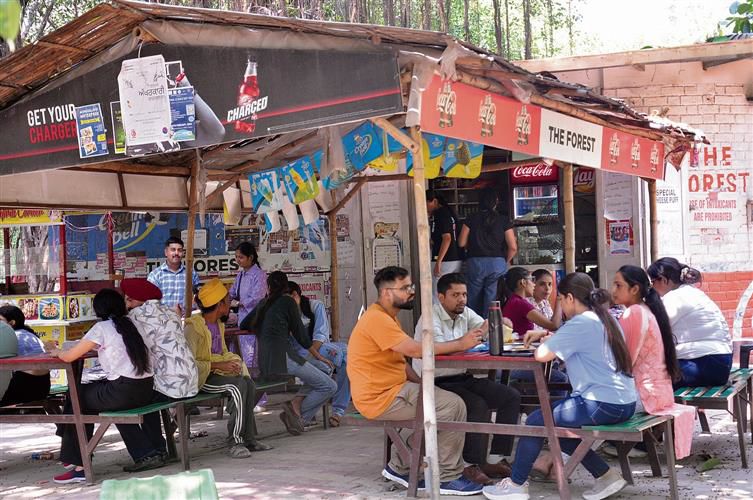UGC advisory on junk food leaves canteen owners in quandary
Amritsar, July 18
The University Grants Commission (UGC) has issued an advisory for universities and colleges, banning the sale of junk food prepared in their canteens. Citing a report of the Indian Council for Medical Research (ICMR), the UGC has said that sale of unhealthy items should be checked because of health concerns.
However, college managements are in a quandary over its implementation as they feel that checking the eating habits of students, who are adults, is next to impossible. “The UGC has emphasised the importance of healthy food but if we implement the decision, then students would eat the same food outside the campus. Fast food is easily available everywhere and is popularly consumed by all age-groups. I feel that in colleges, the canteens have quality control and if university or college canteens ban the sale of junk food, quality control will become a problem,” said Dr Sandeep, senior academician, DAV College, Amritsar.
Most college canteens have limited food options, which also include sandwiches, burgers, samosa, pizza or instant noodles. While the UGC has been issuing these health advisories previously as well, dating back to 2016 and 2018, the sale of junk food continues in all major higher institutions of education.
According to the ICMR report (2020-2023) that the UGC cited, obesity and diabetes which are increasing rapidly in India, have assumed serious dimensions. To tackle this growing problem, NAPI has called for the speedy implementation of the National Multi-Area Action Plan (NMAP). But offering a healthy replacement might come at a cost for canteen owners as well.
“If we don’t sell these food items, the students would go out and eat. Eventually, you cannot check what the students eat outside of campus anyway. But this will hit our business as most students ask for these food items,” said a canteen owner (name withheld on request) inside GNDU campus. His single day sale mostly comprises of selling instant noodles, sandwiches and pizza.
Another café owner, inside GNDU campus, said that restraining students from eating what they like is difficult. “The ones who live in hostels also do not eat the food served in hostel canteens or mess. They choose to order junk food from outside the campus or go out to eat. Then how does the decision serve its purpose?”
Often, these canteen owners serve junk food priced between Rs 40-Rs 90, which is suitable for students as they have limited means. “Banning them in college canteens would mean that students would go out and spend Rs 200-Rs 500 on eating this kind of food outside the campus. While it might not hinder them, it will definitely mean lesser business for us,” said the cafe owner.









